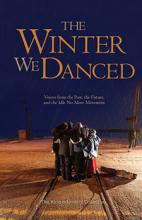After getting a coffee I sat down to read The Winter We Danced.
On the table next to me I noticed a book someone left behind. On the cover was a bold notice stating “2.5 million copies sold.” The book was a contemporary work of fiction re-telling the conquest narrative of America expanding into the West doing battle in “Indian country.”
I turned my attention back to The Winter We Danced and thought also of Islands of Decolonial Love that I had recently finished. Both are stand-out contributions from Winnipeg-based Arbeiter Ring Publishers. These books will not sell 2.5 million copies. This fact is a tragedy and a reminder. It is a tragedy that these unique and impactful works will not receive the audience they deserve, and, conversely, it is a reminder of the sorts of stories we prefer to tell ourselves.
The Winter We Danced will make it more difficult to write some future bestselling novel of Canada’s brave resistance to the potential terrorist actions of the indigenous people in the years 2012-13. It is an archive, a vast collection of stories, poems, songs, editorials, blog posts, tweets, images and histories that explore the people and events that came to be identified with the Idle No More Movement. This is a primary resource of accounts as they unfolded and the reflections that emerged in the wake of these events. The collection is not only important for future generations, but a present reminder of how quickly these events can vanish from mainstream media.
As I read through these accounts I was struck again by the importance of Chief Theresa Spence’s hunger strike and how quickly I had forgotten it. There are many stories competing to occupy our memory and imagination.
Islands of Decolonial Love is a collection of poems and short stories by Leanne Simpson, an indigenous theorist and storyteller. The title is acutely accurate, as this collection moves among the registers of love, isolation, experimentation, abuse and hope.
This book is work to read. It is the necessary and at times painful work of emerging from another story—one that has also sold millions—a story of love that was never meant for indigenous bodies and souls. Simpson’s stories swirl with dirt and blood, water and whisky, red and white, and if there are connections among these islands—and even bones are broken into islands—it is by threads of love. Simpson writes: “i want to pick you up, and i’m going to stitch every one of your broken bones back together with kisses.”
These books challenge our imagination. They put in bold contrast many of the stories we are more comfortable with, especially for those of us immersed in the history and story of the West. I can only remind readers of the two images cast by the titles: love and dance. These forms are often closely related. We would do well to learn some new steps.
David Driedger is associate pastor of First Mennonite Church, Winnipeg.
--Posted Oct. 22, 2014





Add new comment
Canadian Mennonite invites comments and encourages constructive discussion about our content. Actual full names (first and last) are required. Comments are moderated and may be edited. They will not appear online until approved and will be posted during business hours. Some comments may be reproduced in print.